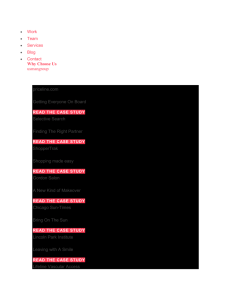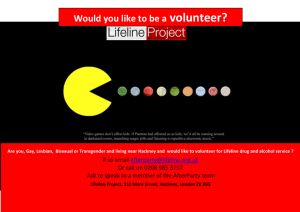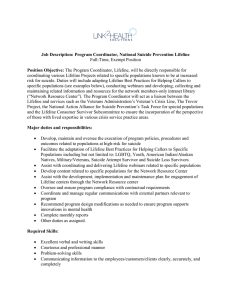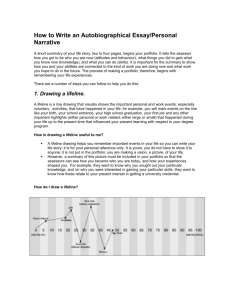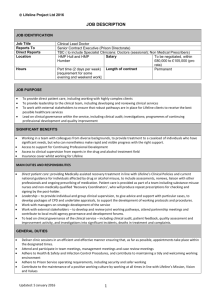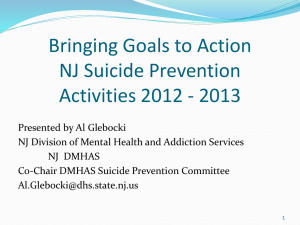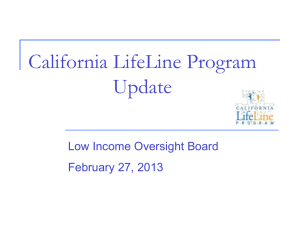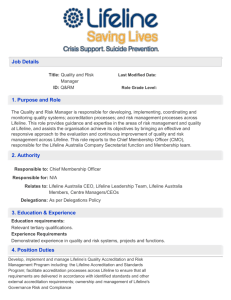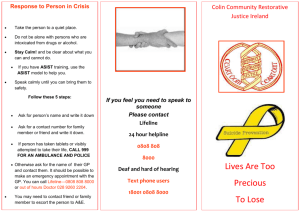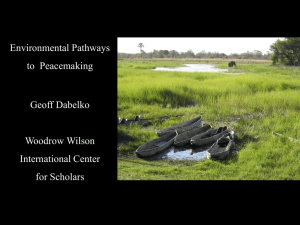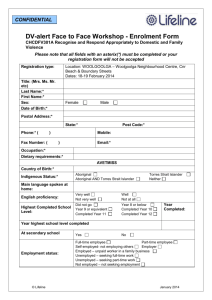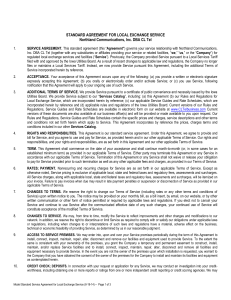readthesigns
advertisement
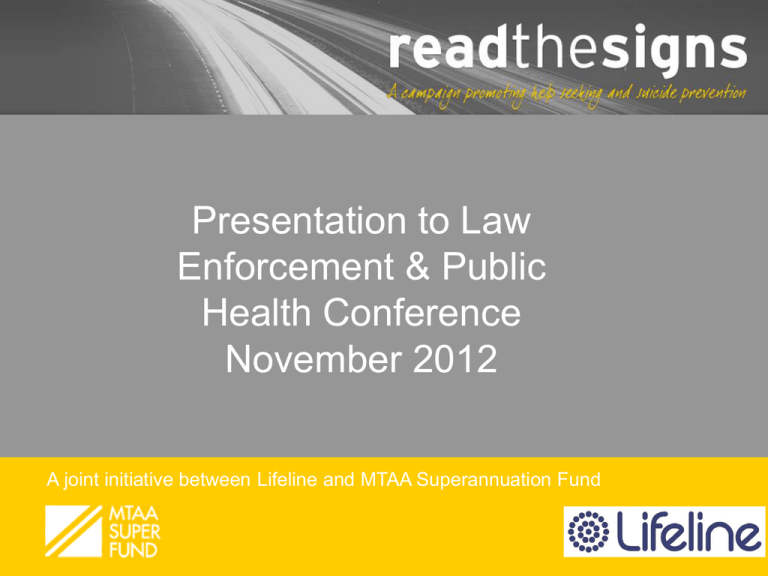
Presentation to Law Enforcement & Public Health Conference November 2012 A joint initiative between Lifeline and MTAA Superannuation Fund Background • In 2000/01 the Trustee Directors of the MTAA Super raised concerns about suicides among the young male membership of the fund. • Statistical data indicated that MTAA Super’s suicide incidence was above the then national average in the 15-24 and 25-34 age brackets. • Tragic human loss, but as well, a commercial issue through higher death claims leading to higher insurance costs to members. Background • MTAA Super: an ‘all profits to members’ industry fund with low operating costs. • Lifeline: a national organisation with 42 Centres operating 24 hour telephone crisis support through 13 11 14 and promoting mental health education and suicide prevention. Background • Fund commissioned research through Lifeline which revealed that a properly targeted program could be effective. • First step in the development of a sociallydriven and successful partnership which has been in place ever since. Project strategies • Increase awareness of options for seeking help, particularly in situations involving mental health or suicide. • Develop awareness and skills in recognizing and responding to people at risk of suicide. • Provide resources for supporting people who have been affected by a suicide. Project strategies • readthesigns was initially developed with a workplace focus. • Stigma and employer reluctance led to a review and to the adoption of the current model. • From 2004 the model is: a communications campaign; mental health awareness and suicide prevention presentations to apprentices; and resources to support people impacted by the suicide of a loved one, friend or colleague. Project activities Lifeline Trainers deliver Awareness Sessions as part of the curriculums for training apprentices in the motor trades in: • • • • • • ACT NSW SA QLD VIC WA Some 3500 apprentices have participated in the program since 2006. Other activities • Website – www.readthesigns.com.au Currently being revamped. • Toolkits and other communications are also being updated. • Further resources including technology options being considered/explored. • Survivors of Suicide booklet provided to Coroners, Emergency Services, Doctors, counseling services etc. and the general public. Other activities • V8 Supercars Driver promotions HRT and FPR ‘bi-partisan’ support Trackside signage • Mark Skaife – Ambassador for readthesigns TV interviews Introduction to training DVD Topics covered Stress Depression awareness Suicide prevention ASIST for teachers, counsellors. Signs, symptoms, strategies for coping, referrals Workplace posters and flyers Wallet card Who can help? • • • • Talk to a mate / partner / family Talk to your local GP or another doctor Call the local community health service Contact another health professional eg psychologist or counsellor • Contact Lifeline: 13 11 14 (24 hours) or Online Crisis Chat (8pm – 12mn AEST/AEDT) and other resources at www.lifeline.org.au/Get-Help • Check out www.readthesigns.com.au for lots of other information. readthesigns website www.readthesigns.com.au Achievements • Lifeline is able to identify many instances where interventions have avoided self harm and potential suicides. • MTAA Super’s Group Life insurer - Metlife reported 53% reduced death claims from 20042007. • Current and new members of the super fund are advantaged from a higher insurance benefit/premium ratio. Contacts For more information please contact: John Jones 02 6215 9419 john.jones@lifeline.org.au Debbi Knee 02 6215 9417 debbi.knee@lifeline.org.au Please visit www.readthesigns.org.au and the Lifeline website www.lifeline.org.au
